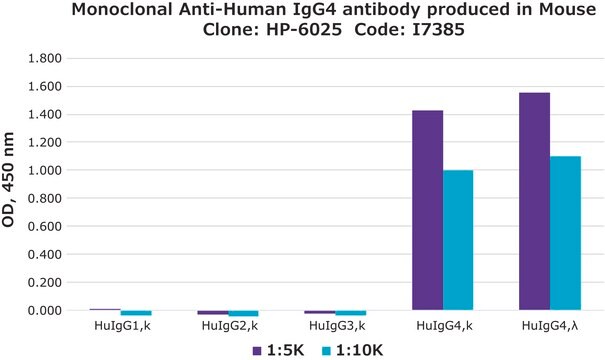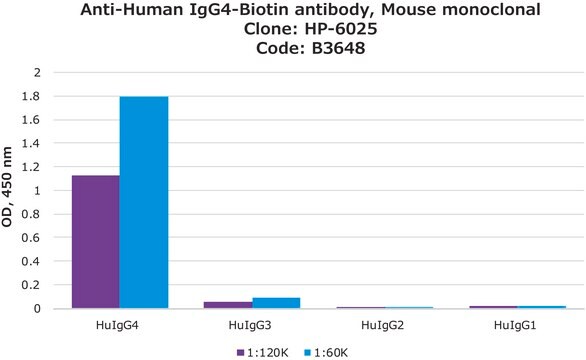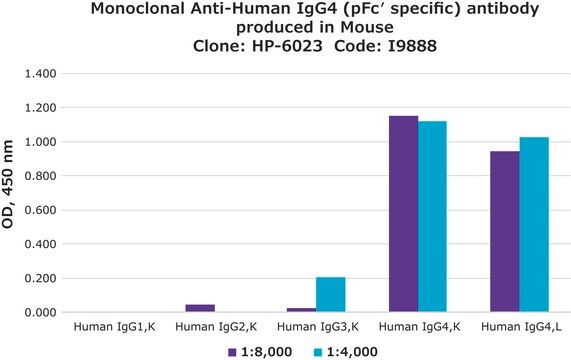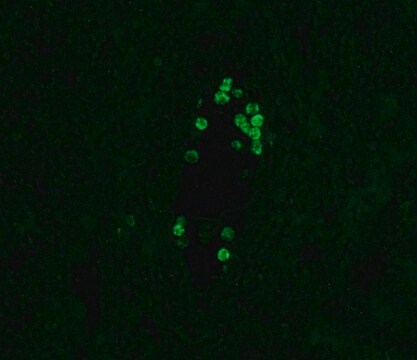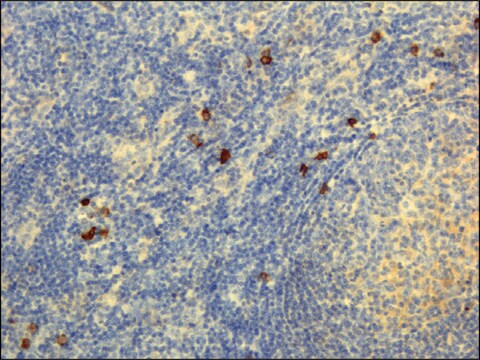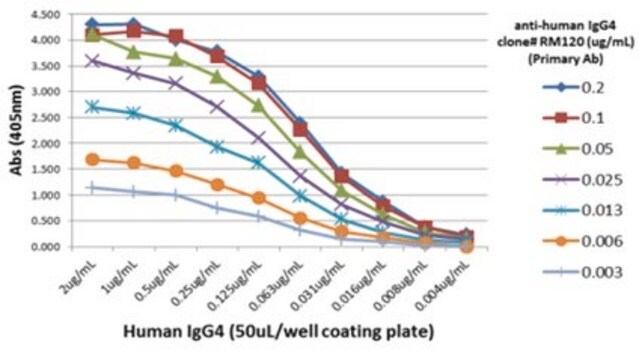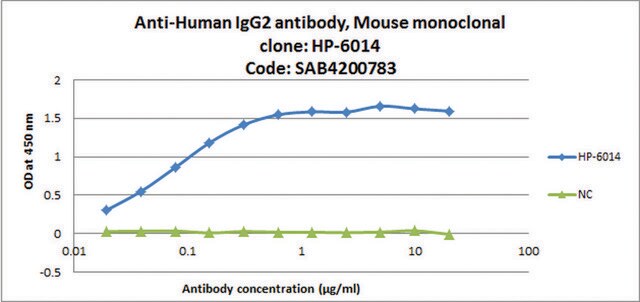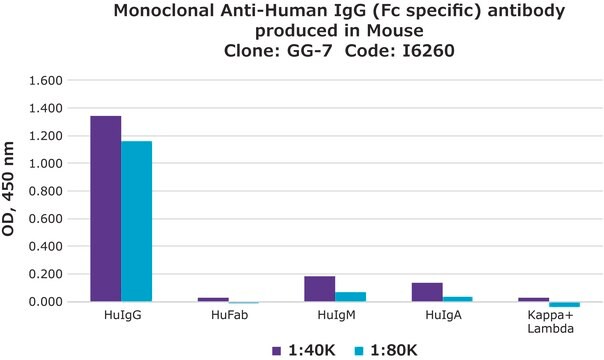SAB4200683
Anti-Human IgG4 antibody, Mouse monoclonal
clone HP-6025, purified from hybridoma cell culture
Synonym(s):
Monoclonal Anti-Human IgG4 antibody produced in mouse
About This Item
Recommended Products
biological source
mouse
Quality Level
antibody form
purified immunoglobulin
antibody product type
primary antibodies
clone
HP-6025, monoclonal
form
buffered aqueous solution
species reactivity
human
concentration
~1 mg/mL
technique(s)
immunoblotting: suitable
indirect ELISA: 0.15-0.3 μg/mL using 1 μg/ml human IgG4 myeloma proteins for coating.
isotype
IgG1
shipped in
dry ice
storage temp.
−20°C
target post-translational modification
unmodified
General description
Specificity
Immunogen
Application
Biochem/physiol Actions
Physical form
Disclaimer
Not finding the right product?
Try our Product Selector Tool.
Storage Class Code
10 - Combustible liquids
Flash Point(F)
Not applicable
Flash Point(C)
Not applicable
Choose from one of the most recent versions:
Certificates of Analysis (COA)
Don't see the Right Version?
If you require a particular version, you can look up a specific certificate by the Lot or Batch number.
Already Own This Product?
Find documentation for the products that you have recently purchased in the Document Library.
Customers Also Viewed
Our team of scientists has experience in all areas of research including Life Science, Material Science, Chemical Synthesis, Chromatography, Analytical and many others.
Contact Technical Service